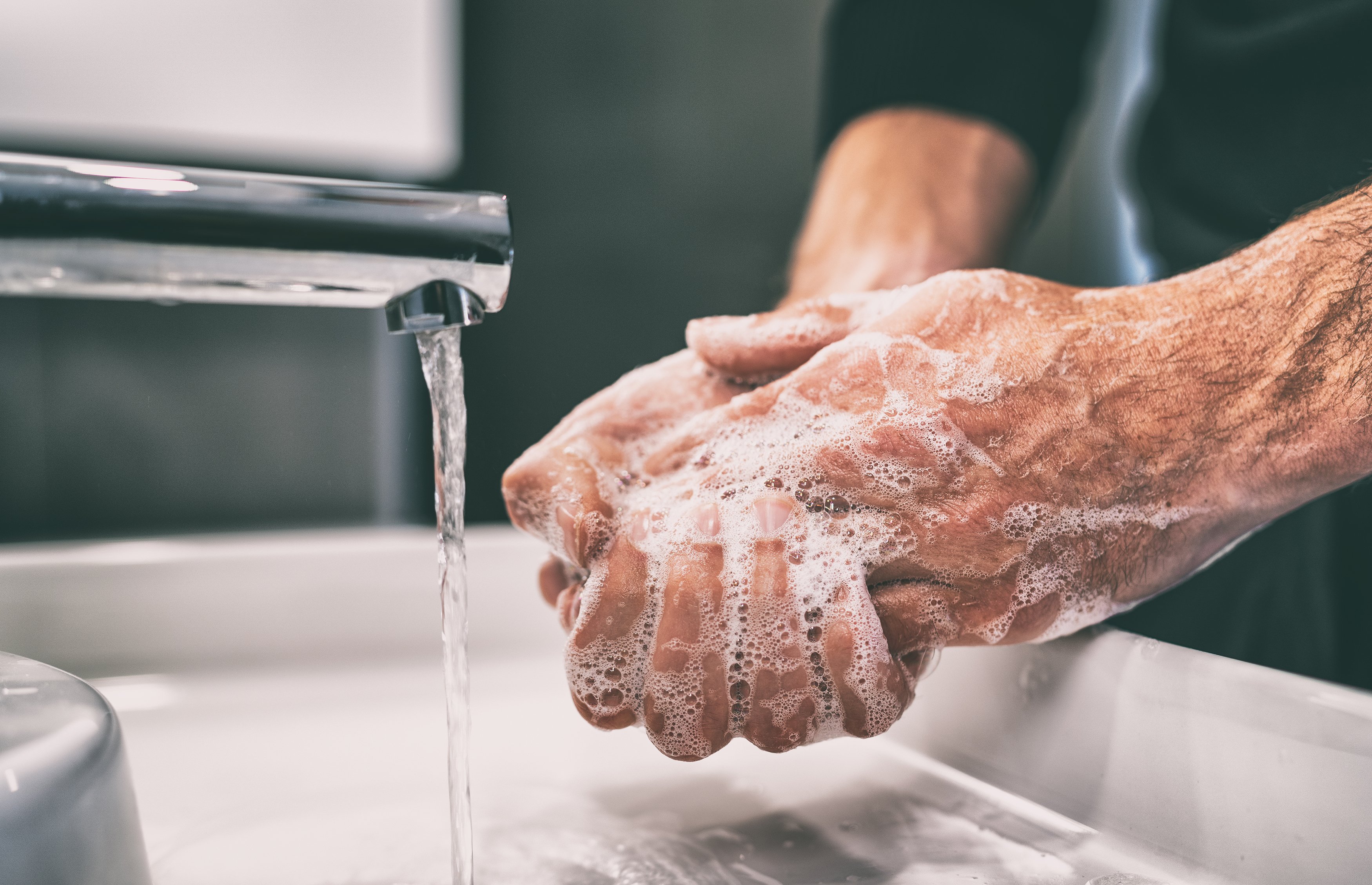Asset Publisher
Handwashing Health to Prevent Infectious Diseases
By Julie Hayes | 06/15/2020

An older adult carefully washing their hands
Handwashing is an essential precaution during cold and flu season, and has taken on an even greater significance due to the COVID-19 pandemic. From the beginning of the pandemic, the Centers for Disease Control and Prevention (CDC) has urged people to wash their hands regularly as a key effort to reduce the spread of infection. Careful attention to washing hands throughout the day can prevent us and our loved ones from coming down with colds and the flu, as well as help with continued efforts to flatten the curve of COVID-19.
Why handwashing is important
People of all ages come in contact every day with other people and places that carry a wide variety of bacteria, germs and viruses that cause colds, the flu and other contagious diseases like COVID-19. The immune systems of older adults are generally not as strong as those of younger people, and, as a result, they are at greater risk for coming down with infections (Zagaria, M. Predisposition to Infection in the Elderly. US Pharmacist. 2011;36(8):28-31). Contracting an infectious disease can often lead to pneumonia and other serious illnesses in older adults as well.
The flu can often be prevented with vaccines administered early in the flu season. But because there are many varieties of cold viruses, there is currently no vaccine or any other medical treatments to prevent colds.
Frequent handwashing throughout the day can prevent older adults— and their caregivers — from a bout with infectious diseases, and decrease the likelihood of spreading diseases to family members, friends, relatives and other people they come in contact with. Good handwashing skills can reduce a loved one’s risk of catching and spreading respiratory disease by 16 to 21 percent, according to the CDC.
Handwashing and COVID-19
According to current research into the COVID-19 pandemic by the CDC, the risk of death sharply increases for those who contract the disease at the age of 65 or older. As research into a COVID-19 vaccine is still ongoing, handwashing, along with following social distancing guidelines, is a key measure in preventing and limiting the spread of the disease. The CDC also encourages using hand sanitizers with at least 60 percent alcohol content if we don’t have immediate access to soap and water.
When to wash hands
Here is a list of everyday activities that should be followed up with a visit to the bathroom sink to wash our hands, as well as loved ones, to rid them of disease-causing microbes:
- Whenever hands look like they need washing.
- Before and after eating.
- After using the toilet.
- After going out in public, especially if we have physical contact with other people or items.
- After being around people with coughs, fever, aches and pains and other flu-like symptoms.
- After blowing our noses, coughing or sneezing.
- After petting, playing with or cleaning up after pets.
- After playing with children—especially if the children have runny noses or coughs.
- After touching garbage, trash or garbage cans.
- Before and after treating cuts, sores, scratches or other minor wounds.
- Before and after preparing food, especially raw meat, poultry and uncooked eggs.
Wash hands in seven easy steps
Handwashing is a skill we all probably perfected when we were younger, and shortened into a more simple procedure as we grew older and busier. It never hurts to remind ourselves, and our loved ones, about best practices for handwashing to make sure we follow all recommended steps and wash our hands as thoroughly as possible:
- Wet hands with warm, clean running water.
- Apply soap.
- Rub hands together for at least 20 seconds, the time it takes to sing the “Happy Birthday to You” song twice.
- Scrub the tops of hands, between fingers and under fingernails.
- Rinse hands in warm running water.
- Dry hands on a clean paper or cloth towel.
- If towels are not available, let hands air-dry.
Remedies for dry skin
Dry skin is common in older people — especially in cold weather. To prevent uncomfortable, dry skin, we can suggest that a loved apply fragrance-free creams or lotions to soften the skin on the hands, especially at bedtime. If the skin on their hands or feet becomes sore, cracked or irritated, we should ask a loved one’s doctor to recommend other ointments that may be more effective.
Enjoy a good handwashing!
Hand washing can give us and a loved one a moment to take a relaxing break in our day. In many countries and faiths, washing hands is an important ritual. We can make it become a routine practice in our home too. When our homes are healthy and infection-free, everyone will enjoy the benefits!
